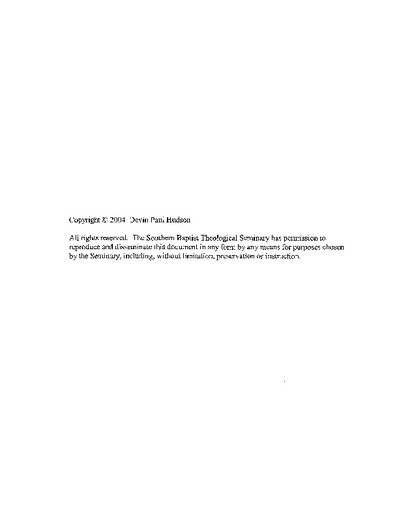Covenant as a framework for understanding the primary divorce and remarriage texts in the New Testament
Subject
Bible. N.T.--Criticism, interpretation, etc.Divorce--Biblical teaching
Remarriage--Biblical teaching
Abstract
This dissertation identifies covenant as a primary framework for understanding marriage in the Bible and the divorce and remarriage texts of the New Testament. Chapter 1 defines the need for such a work and provides a basic overview of the present major positions.
Chapter 2 provides a theology of marriage based upon the biblical principle of covenant and the foundational principles of Genesis 2:24: leave, cleave, and one flesh.
Chapter 3 examines the primary Old Testament texts and their contribution to this discussion. Passages that are examined include Genesis 1-2, Deuteronomy 24:1-4, Malachi 2:10-16, and other pertinent texts. These passages help shape one's understanding of the New Testament teachings on divorce and remarriage.
Chapters 4 and 5 serve as the heart of the work and consider the words of Jesus and Paul on divorce and remarriage. It is argued in these chapters that both Jesus and Paul promote the ideal of lifelong marriage but also allow for divorce when the covenant of marriage is violated. Jesus deals with the "one flesh" aspect of the marriage covenant, and Paul addresses the "leave" and "cleave" elements. When these parameters are obstinately violated, divorce is permitted but not required. It is also important to understand and interpret the words of Jesus and Paul in their historical context, for it is only within this context that we can understand fully what they are teaching.
Chapter 6 is the conclusion and provides an overview of the work as well as some pastoral implications of the research.

